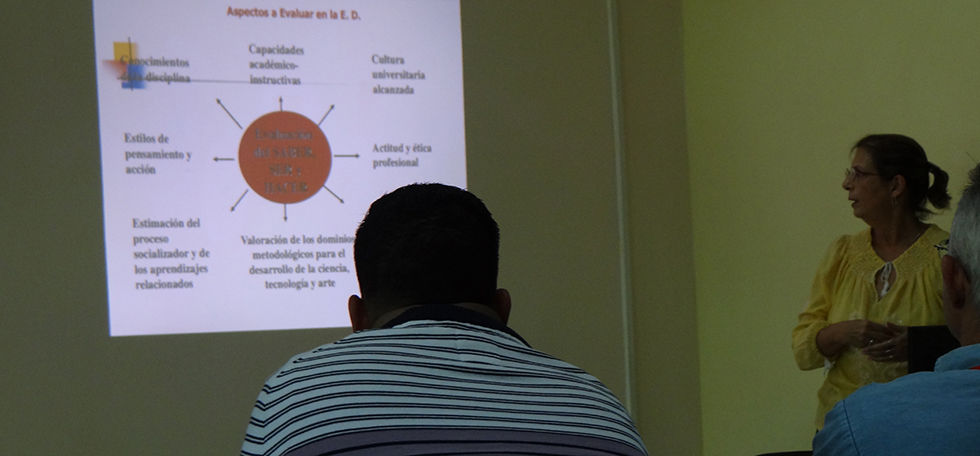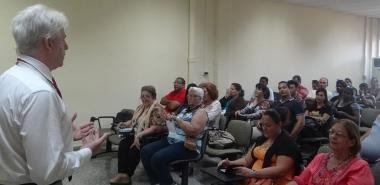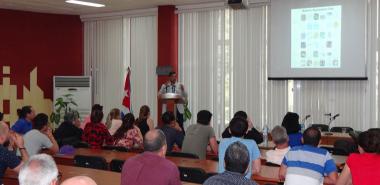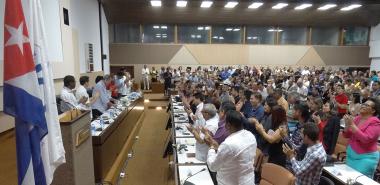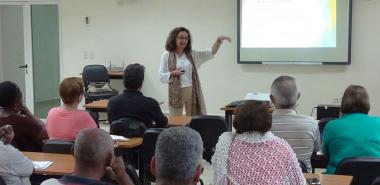Photo: Tania García Torres
Evaluation in distance education, from CENED.
One of the most complex issues in the teaching-learning process, which generates the most dissimilar criteria in Cuba, is undoubtedly the evaluation of student learning.
About this topic, but the so-called open or non-face-to-face learning, was the lecture given on Tuesday at the University of Informatics Sciences (known as UCI) by Ph.D. Liliana Casar Espino, professor of the National Distance Education Center (known as CENED).
The evaluation of learning in distance education, agreed Casar Espino, is a continuous process that allows judging the achievement of the proposed objectives and provide valuable data in the decision making to make the relevant adjustments.
He explained that assessment through technology platforms requires rigorous planning, ongoing communication and adaptability to individual differences that promote student debate and reasoning on a given topic.
From the conference room of CENED in teaching building 3, Ph.D. Liliana recommended some strategies and techniques of evaluation according to the types of learning and their modes of application; The types, forms and principles of evaluation, as well as functions of this modality of study.
The professor of the Department of Management of Training of the CENED, in exchange with the audience, synthesized that the evaluation as an activity inherent to the didactic process requires professional actions and decisions. "It is essential to combine pedagogical and technological skills in professors ," Espino said.



